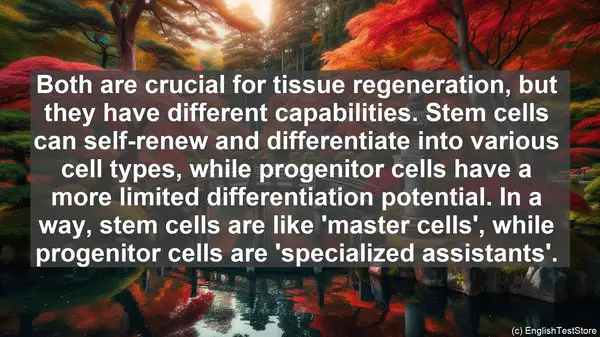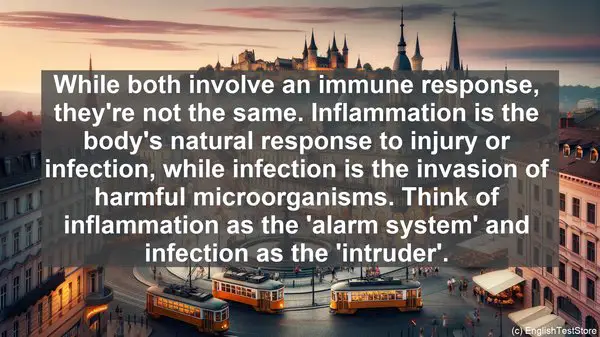Introduction
Today, we’re diving into the fascinating world of tissue regeneration. But before we begin, let’s address a common challenge – the confusing words. In this lesson, we’ll clarify the top 10 words that often trip students up. So, let’s get started!
1. Regeneration vs. Repair
While both terms refer to the healing process, there’s a subtle difference. Regeneration is the complete restoration of the original tissue, while repair involves scar formation. So, in simple terms, regeneration is like regrowing a lost limb, while repair is more like patching up a wound.

2. Dedifferentiation vs. Transdifferentiation
These words often confuse even experienced researchers. Dedifferentiation is when a specialized cell reverts to a less specialized state, while transdifferentiation is the conversion of one specialized cell type into another. Think of dedifferentiation as a cell ‘going back in time’ and transdifferentiation as a cell ‘changing its career’.
3. Stem Cells vs. Progenitor Cells
Both are crucial for tissue regeneration, but they have different capabilities. Stem cells can self-renew and differentiate into various cell types, while progenitor cells have a more limited differentiation potential. In a way, stem cells are like ‘master cells’, while progenitor cells are ‘specialized assistants’.
4. Scaffold vs. Matrix
These terms often come up when discussing tissue engineering. A scaffold is a 3D structure that provides support for cell growth, while a matrix is the extracellular environment that surrounds cells. Imagine a scaffold as the ‘skeleton’ and the matrix as the ‘surrounding environment’ in which cells reside.
5. Angiogenesis vs. Vasculogenesis
Both processes involve the formation of blood vessels, but there’s a slight difference. Angiogenesis is the growth of new blood vessels from pre-existing ones, while vasculogenesis is the de novo formation of blood vessels. So, angiogenesis is like ‘branching out’ from existing vessels, while vasculogenesis is like ‘building from scratch’.
6. Epithelialization vs. Granulation
These terms are often used when discussing wound healing. Epithelialization is the migration of epithelial cells to cover a wound, while granulation is the formation of new connective tissue. Imagine epithelialization as the ‘closing of a gap’ and granulation as the ‘filling of a gap’.
7. Inflammation vs. Infection
While both involve an immune response, they’re not the same. Inflammation is the body’s natural response to injury or infection, while infection is the invasion of harmful microorganisms. Think of inflammation as the ‘alarm system’ and infection as the ‘intruder’.
8. Differentiation vs. Maturation
These terms are often used when discussing cell development. Differentiation is the process by which a cell becomes specialized, while maturation is the final stage of development. So, differentiation is like ‘choosing a career’ and maturation is like ‘becoming an expert’.
9. Cytokines vs. Growth Factors
Both are important for cell signaling, but they have different functions. Cytokines are involved in cell communication and immune responses, while growth factors stimulate cell growth and division. Imagine cytokines as the ‘messengers’ and growth factors as the ‘growth promoters’.
10. Autograft vs. Allograft
These terms come up when discussing tissue transplantation. An autograft is tissue transferred from one part of the body to another in the same individual, while an allograft is tissue transferred between individuals of the same species. So, autograft is like ‘self-transplantation’ and allograft is like ‘transplantation between individuals’.

